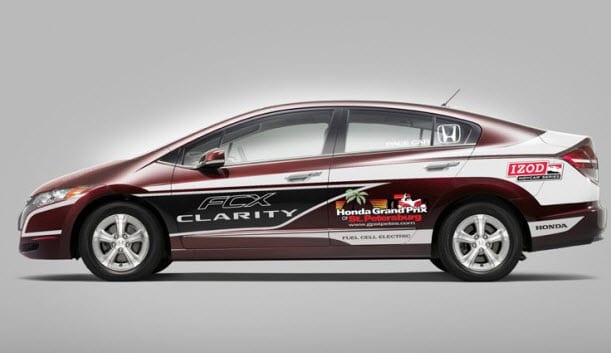Honda to begin production on new hydrogen fuel cell vehicle in 2016
May 27, 2015Honda has high hopes for fuel cell vehicles
Earlier this year, Honda unveiled its new fuel cell vehicle concept, which managed to attract a great deal of attention and praise. The Japanese automaker was among the very first in the world to release a vehicle equipped with a hydrogen fuel cell: The Honda FCX Clarity. While this vehicle is only available for lease and is in limited supply, it has managed to expose people to the capabilities of fuel cell vehicles. Honda believes that these vehicles will become more prominent in the coming years.
Fuel cell vehicles show promise as clean transportation solutions
Fuel cell vehicles are becoming more common in the auto industry. These vehicles make use of hydrogen fuel cells, which consume hydrogen and produce electricity. Fuel cell vehicles produce no harmful emissions, as the process of producing electrical power generates only water vapor and oxygen. This has made the vehicles quite popular among those interested in clean transportation, but fuel cells are notoriously expensive, limiting their appeal. Advances in technology are making fuel cell technology less expensive, which will allow more people to purchase fuel cell vehicles.
Full-scale production of new fuel cell vehicle may begin in 2020
 Honda has announced that its next fuel cell vehicle will enter into production in 2016. It is expected that the initial launch of the new vehicle will be limited to Japan, where similar vehicles are beginning to find success. Japan is home to one of the most promising clean transportation markets and the Japanese government has begun investing quite heavily in the establishment of a hydrogen fuel infrastructure to support fuel cell vehicles. Honda expects that full-scale assembly of its new fuel cell vehicle will reach its stride by 2020.
Honda has announced that its next fuel cell vehicle will enter into production in 2016. It is expected that the initial launch of the new vehicle will be limited to Japan, where similar vehicles are beginning to find success. Japan is home to one of the most promising clean transportation markets and the Japanese government has begun investing quite heavily in the establishment of a hydrogen fuel infrastructure to support fuel cell vehicles. Honda expects that full-scale assembly of its new fuel cell vehicle will reach its stride by 2020.
Hydrogen infrastructure needed in order for fuel cell vehicles to succeed
Many other countries lack the hydrogen infrastructure needed to support fuel cell vehicles. Without this infrastructure, fuel cell vehicles will struggle to find traction with consumers. Several markets are working to build the needed infrastructure, but progress on building fueling stations has been somewhat slow. It could be several years before a hydrogen infrastructure that is able to support the widespread adoption of fuel cell vehicles exists.

 HFN News is your leading source for fresh hydrogen and renewable energy updates. Amid the fast-paced growth of hydrogen companies, we provide top-notch news and insights about this exciting sector. Our coverage spans from hydrogen cars to global sustainable initiatives, and we highlight the latest in green jobs and developing hydrogen hubs. We invite you to share your local hydrogen news and explore today’s renewable energy job listings on our site. Thanks for choosing HFN News as your trusted guide to the hydrogen and renewable energy world!
HFN News is your leading source for fresh hydrogen and renewable energy updates. Amid the fast-paced growth of hydrogen companies, we provide top-notch news and insights about this exciting sector. Our coverage spans from hydrogen cars to global sustainable initiatives, and we highlight the latest in green jobs and developing hydrogen hubs. We invite you to share your local hydrogen news and explore today’s renewable energy job listings on our site. Thanks for choosing HFN News as your trusted guide to the hydrogen and renewable energy world!